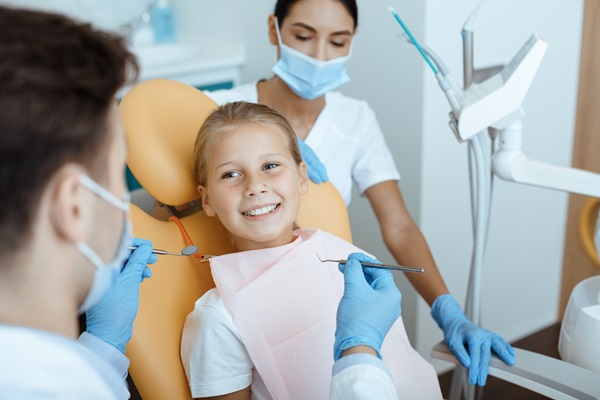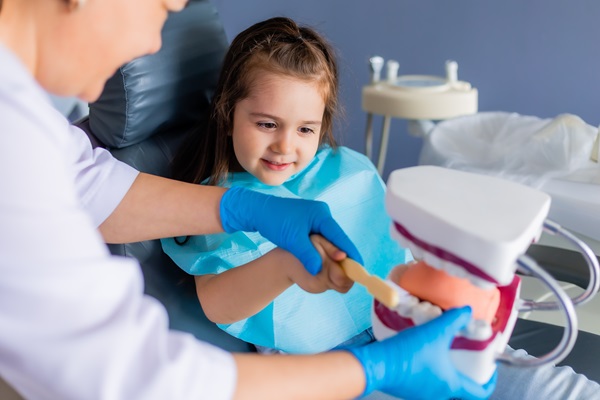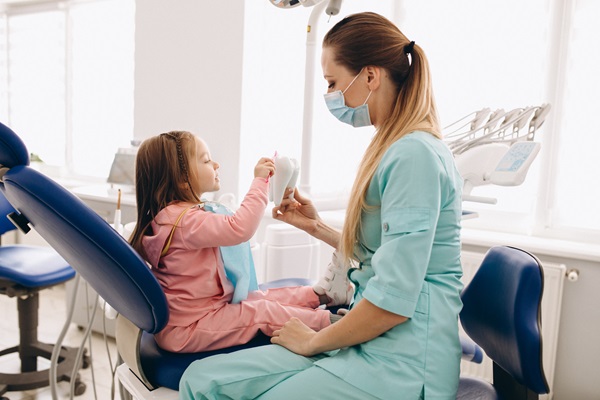When To Take Your Child to an Emergency Pediatric Dentist

Wondering what constitutes a dental emergency in children? Read on to learn what merits a visit to an emergency pediatric dentist. An emergency pediatric dentist is a valuable resource for your child, similar to a hospital's urgent care center. Although it is recommended that patients see the dentist twice a year for examinations and cleanings, one should never ignore a serious tooth problem.
When to visit the emergency pediatric dentist
In the event of a dental emergency, there are benefits to seeing a pediatric dentist. This dental professional is equipped to diagnose and treat even the most difficult cases of oral health issues. If a child is experiencing discomfort or anxiety, a pediatric dentist will know how to best soothe and reassure them. Below are situations that may warrant visiting an emergency pediatric dentist:
Severe tooth pain
Tooth sensitivity and pain are common issues for kids. The consumption of sweet foods or hot or cold beverages may trigger these sensations in children. When the pain is severe or ongoing, it should be treated as an emergency. Parents should not put off taking their children to the dentist. If a child is experiencing severe tooth pain, it is imperative that they see a pediatric dentist immediately.
Broken tooth
Children who engage in a lot of physical activity are at risk for a wide range of injuries. If a parent thought their kid had broken a bone, they probably would not delay taking them to the doctor. Similarly, parents should treat a broken tooth as an emergency. A broken tooth is not just an esthetic issue but also a source of pain and suffering. Moreover, an emergency pediatric dentist can typically quickly repair and save the tooth.
Bleeding gums
If the child’s gums bleed severely or persistently, this could be a dental emergency. This might be a sign of gum disease or infection, which, if left untreated, can result in tooth loss and other unpleasant consequences. Get dental treatment immediately if the child's gums are bleeding profusely or if the bleeding does not stop after several minutes.
Knocked-out tooth
A knocked-out tooth is an emergency, and it goes without saying that parents should rush their child to the dentist if it happens. It is possible to save the tooth if the dentist acts quickly. The pediatric dentist on call may decide that replacing the tooth is the best option. If the knocked-out tooth is found, it should be placed in some milk and brought to the dentist's office.
Facial swelling
Severe facial swelling, especially if accompanied by other symptoms like fever or trouble breathing, may indicate a dental emergency. This might be a sign of a tooth abscess or infection, which, if left untreated, could spread to other regions of the body. If the child's face is swollen, parents should take them to the dentist right away.
Tooth infection
This condition can be worse than serious tooth decay. When the pulp at the base of a tooth becomes infected, the tooth becomes abscessed. The emergency pediatric dentist will seal the tooth with a crown after performing a root canal. An abscessed tooth, if left untreated, may cause an infection that spreads through the rest of the mouth and potentially the rest of the body.
The bottom line
Knowing when your kid is facing a dental emergency and when to take them to the dentist immediately is important. When in doubt, it is best to play it safe and get in touch with your emergency pediatric dentist. The dental professional will recommend the best treatment approach.
Request an appointment here: https://novapedsdentistry.com or call Nova Pediatric Dentistry at (201) 812-2952 for an appointment in our Dumont office.
Check out what others are saying about our dental services on Yelp: Emergency Pediatric Dentist in Dumont, NJ.
Recent Posts
Make sure you include a children’s dentist in your child’s health care regimen. You care about your child’s well-being, so do not neglect their oral health. A qualified dentist can help your kid maintain strong, healthy teeth and gums. When you take your son or daughter to the dentist’s office, you can get an accurate…
Wondering what a kids dentist recommends for baby teeth? Read on to learn more. Giving children the best oral health care is one of the most important jobs parents have. The ideal kids' dentist will lay the foundation for healthy gums and teeth for life. Keeping your child's smile healthy requires following a specific routine.…
Children, who are particularly prone to tooth decay, should brush their teeth twice a day and make regular visits to a pediatric dentist. These healthy habits can help reduce the risks of developing cavities and serious dental issues. Using fluoride toothpaste is also an important step in childhood dental care that can add an extra…
Cavity treatment for kids is a chief concern among parents, and for a good reason. Cavities are common in children of all ages. According to the Centers for Disease Control and Prevention, over half of the kids ages 6 to 8 have had at least one cavity in a primary tooth. The good news is…


